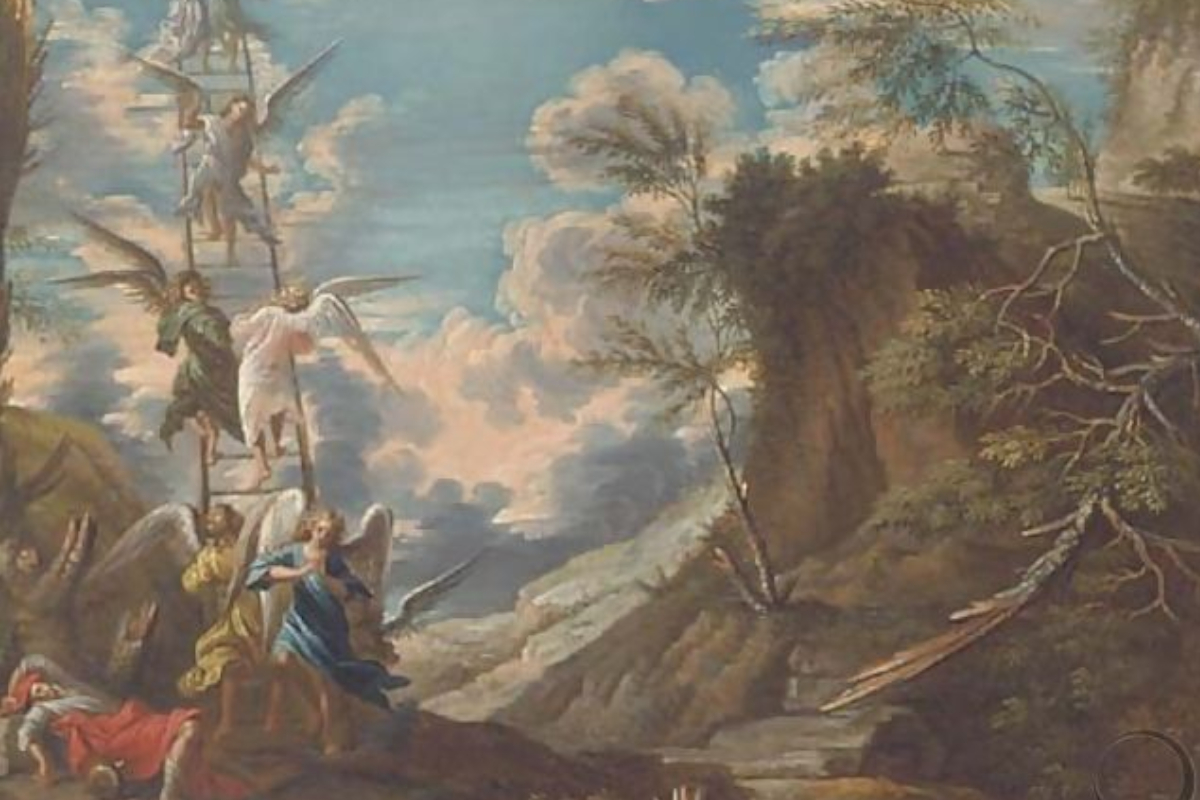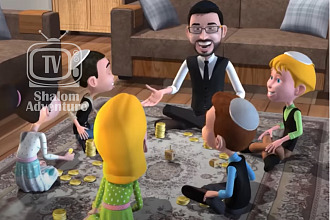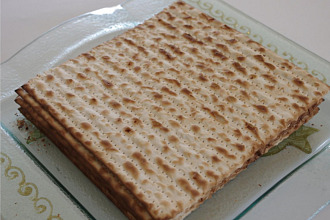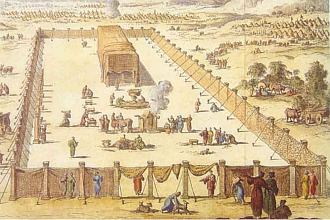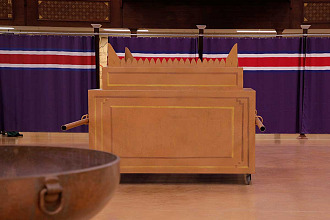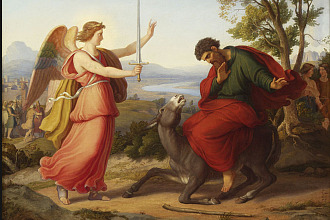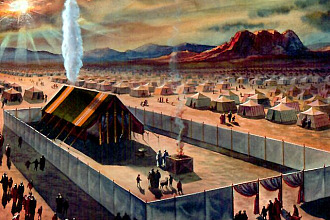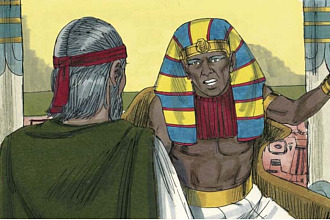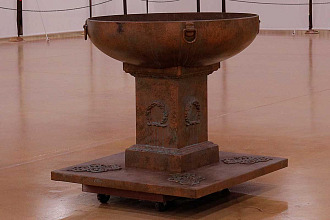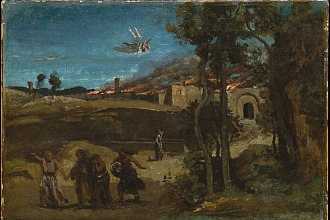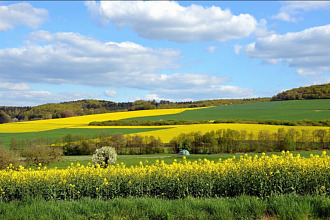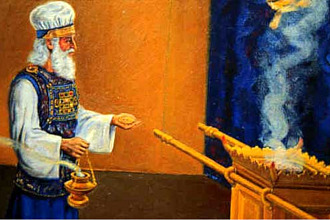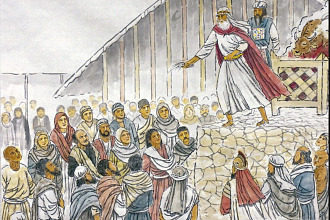Parasha for the Week: Vayetse Genesis 28:10 – 32:3.
Haftara for the Week: Hosea 11:7 – 14:10.
Besorat Yeshua: Mark 11:27 – 12:6.
Overview
Fleeing from Esav, Yaakov leaves Be’er Sheva and sets out for Charan, the home of his mother’s family. After a three day walk, he arrives in a certain place. He sleeps there and dreams of angels going up and down a ladder between heaven and earth. G-d promises him: the Land of Israel; that he will found a great nation; and that he will enjoy Divine protection. Yaakov wakes and vows to build an altar there and to give tithe (10%) of all that he will receive.
Then he travels to Charan and meets his cousin Rachel at the well. He arranges with her father, Lavan, to work seven years for her hand in marriage, but Lavan fools Yaakov, substituting Rachel’s older sister, Leah. Yaakov commits himself to work another seven years in order to also marry Rachel.
Leah bears four sons: Reuven, Shimon, Levi and Yehuda, the first Tribes of Israel. Rachel is barren, and in an attempt to give Yaakov children, she gives her handmaiden Bilhah to Yaakov as a wife. Bilhah bears Dan and Naftali. Leah also gives Yaakov her handmaiden Zilpah, who bears Gad and Asher. Leah then bears Yissachar, Zevulun, and a daughter, Dina. Hashem finally blesses Rachel with a son, Yosef.
Yaakov decides to leave Lavan, but Lavan, aware of the wealth Yaakov has made for himself, is reluctant to let him go, and concludes a contract of employment with him. Lavan tries to swindle Yaakov, but Yaakov becomes extremely wealthy. Six years later, Yaakov, aware that Lavan has become dangerously resentful of his wealth, flees with his family. Lavan pursues them, but is warned by G-d not to harm them. Yaakov and Lavan agree to a covenant and Lavan returns home. Yaakov continues on his way to face his brother Esav.
Two Brothers and Two Sisters
The Torah states that Jacob loved Rachel; so he answered, “I will serve you seven years for your younger daughter Rachel” (Genesis 29:18). Since the first day Yaakov saw Rachel at the well, he loved her and wanted to marry her. A deal was made; he would work seven years for her, and then he would marry her. However, the day after the wedding, Yaakov discovered that he was cheated and instead of Rachel, Laban gave to him Leah the oldest sister.
There is a parallel with the story we have in the previous parasha, Toldot, where we have two brothers. Esav’s father gave the blessing he had for the first born to Yaakov.
In Toldot we have two brothers. The youngest cheated the oldest (in taking his appearance) in order to get the special blessing.
In Vayetse we have two sisters. The oldest cheated the youngest (in taking her appearance) in order to marry Yaakov and to get the special blessing. However in Vayetse it is the father who is the instrument of this event.
Rachel’s Suffering
The Torah states, “when Rachel saw that she did not bear children to Jacob, Rachel envied her sister. And she said to Jacob: ‘Give me children, if not I am as a dead woman.’ Jacob’s anger was kindled against Rachel and he said, ‘Am I in the place of God, who has withheld from you the fruit of the womb?’ “ (Genesis 30:1-2).
The Dream of the Ladder
In the beginning of this week’s Parasha, Vayetse, the Torah tells about Yaakov’s famous dream. In his dream he saw, “a ladder stood upon the earth and the top of the ladder reached into heaven and G-d’s angels ascended and descended upon it. G-d was standing over him and said, ‘I am G-d, the G-d of Abraham your father, and the G-d of Yitzchak. I will give to you and to your descendants the land on which you are lying’” (Gen 28:12-13). According to our sages, the ladder represents our prayers through which we connect to G-d.
It is also clear that our connection to G-d is through the Messiah. He said, “I am the way, the truth, and the life . . . Without me, no one can go to the Father” (Yochanan 14:6). We also have an interesting encounter of Yeshua with Natanael. In his dialogue, Yeshua mentioned the ladder of Yaakov, showing that the ladder of Yaakov represented the Messiah (The Son of Man), through whom we can connect to G-d. “I tell you for certain that you will see heaven open and God’s angels going up and coming down on the Son of Man” (Yochanan 1:51).
Thanksgiving
After experiencing the dream of the ladder to heaven, seeing the angels, and hearing God’s voice and promises, Yakov gives thanks to God by vowing to return 10% of all that he receives back to God. At this point Yakov had nothing, but God had promised him much. Yakov did become wealthy and he faithfully returned to God what is God’s: 10 percent.
HAFTARA Hosea 11:7 – 14:10
Parasha: This week’s Parasha tells us that Yaakov left his home to go to his Uncle Lavan’s house. On the way he slept in Bethel and had a dream – the dream of the ladder. “He came to a certain place and stayed there for the night, because the sun had set. Taking one of the stones of the place, he put it under his head and lay down in that place. He dreamed that there was a ladder set up on the earth, the top of it reaching to heaven; and the angels of God were ascending and descending on it. The LORD stood beside him and said, “I am the LORD, the God of Abraham your father and the God of Isaac; the land on which you lie I will give to you and to your offspring” (Genesis 28:11-13).
Haftara: Hosea reminds us of Yaakov’s dream saying. “He met him at Bethel, and there he spoke with him. The LORD the God of hosts, the LORD is his name!” (Hosea 12:4,5).
Parasha: God spoke directly to Yaakov. “Then the LORD said to Yaakov, “Return to the land of your ancestors and to your kindred, and I will be with you.” (Genesis 31:3).
Haftara: Hosea reminds us that Yaakov was guarded by God. No prophet spoke to Yaakov. God spoke directly to him. “Yaakov fled to the land of Aram, there Israel served for a wife, and for a wife he guarded sheep. By a prophet the LORD brought Israel up from Egypt, and by a prophet he was guarded. (Hosea 12:12-13).
Parasha: God will be with Yaakov. “I am the God of Bethel . . . Now leave this land at once and return to the land of your birth’” (Genesis 31:13).
Haftara: Hosea said that the return of Yaakov to his land will also be a return to God. Yaakov is the representative of God’s people who are to return to God. “Return, O Israel, to the LORD your God” (Hosea 14:1).
Besorat Yeshua Mark 11:27 – 12:6
Parasha: Yaakov’s authority was questioned by Esau. Esau disagreed with Yaakov and wanted to cancel their deal about the firstborn’s rights: “Your brother Esau is consoling himself by planning to kill you” (Gen. 27:42).
Besorah: The scribes and elders questioned Yeshua’s authority. “The chief priests, the scribes, and the elders came to him and said, ‘By what authority are you doing these things? Who gave you this authority to do them?’” (Mark 11:27- 28).
Parasha: Esau’s opposition to Yaakov has become the type of all opposition to God’s people.
Besorah: Yeshua applied this opposition to his own person. He explained it by a parable. “A man planted a vineyard, put a fence around it, dug a pit for the wine press, and built a watchtower; then he leased it to tenants and went to another country. When the season came, he sent a slave to the tenants to collect from them his share of the produce of the vineyard. But they seized him, and beat him, and sent him away empty-handed. And again he sent another slave to them; this one they beat over the head and insulted. Then he sent another, and that one they killed. And so it was with many others; some they beat, and others they killed. He had still one other, a beloved son. Finally he sent him to them, saying, “They will respect my son.” But He was killed also (Mark 12:1-6).

